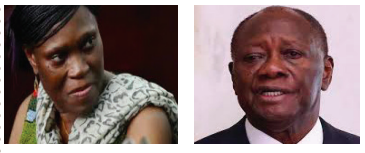By Princess G. Adebajo-Fraser
A disturbing undercover investigation by BBC Africa Eye has uncovered a secretive pharmaceutical operation in India manufacturing highly potent opioid-based painkillers for illegal export to Africa. The pills—sold under street names like Tafrodol—are significantly stronger than Tramadol and are being abused by thousands of African youths seeking escape from pain, anxiety, or economic despair.
The investigation exposes a multi-billion-naira illicit trade threatening to wipe out a generation of future leaders while enriching traffickers and rogue manufacturers.
Inside the Indian factory
The BBC’s cameras captured factory workers admitting openly that the pills were “mainly for Africa,” where demand “never stops.” Packages were labelled as muscle relaxants or energy boosters to evade regulatory checks.
Many products were not approved by India’s Central Drugs Standard Control Organization (CDSCO) and contained opioid concentrations several times above the permissible medical dosage. Lab tests found synthetic opioids blended with muscle relaxants, creating a hybrid substance far more addictive and dangerous than standard Tramadol.
The footage revealed poor oversight, falsified export documents, and zero ethical restraint. What begins in a remote Indian industrial zone ends in the hands of street dealers in Lagos, Accra, and Freetown — a tragedy built on the loopholes of globalization.
From medicine to menace — a timeline of failure
The United Nations Office on Drugs and Crime (UNODC) first warned in 2015 that traffickers were shifting from traditional narcotics to synthetic opioids because they were easier to produce and transport.
In its 2021 report, the UNODC documented the seizure of over 600 tonnes of Tramadol worldwide, with 70 percent traced to shipments bound for Africa, mostly via India and the Gulf.
Nigeria’s National Drug Law Enforcement Agency (NDLEA) confiscated more than 30 million opioid tablets between 2021 and 2023, while Ghana, Benin, and Sierra Leone reported a threefold rise in synthetic-drug seizures within the same period.
UNODC now describes opioid misuse in West Africa as a “silent pandemic”, estimating that 10 million people in the region have misused pharmaceutical opioids in the past year. In Nigeria, abuse among 18- to 35-year-olds has doubled within five years.
‘Tafrodol’: the new street poison
The BBC identified Tafrodol as the latest and deadliest entrant into the market — a high-dose opioid fused with a fast-acting muscle relaxant that delivers an intense, short-lived high. Dealers call it “Super Tram” or “225 Plus.”
The pill sells for N500–N800, making it easily accessible to students, motor-park workers, and unemployed youths.
A Kaduna university student told Headlinenews.news:
“We call it the strong one. It makes you fearless and focused, but when you stop, you shake all over. Many of my friends couldn’t quit.”
A 24-year-old mechanic from Kano added:
“It gives power for a few hours, then weakness for days. My friend died after taking four in one night.”
Medical experts confirm that such abuse causes respiratory collapse, heart failure, and irreversible brain damage. The World Health Organization (WHO) links non-medical opioid use to one-fifth of all substance-related deaths among African youths.
The social toll — families collapsing, classrooms emptying
Across Nigeria, Ghana, and Sierra Leone, hospitals and rehabilitation centres are overwhelmed. The Federal Neuropsychiatric Hospital Kaduna reports that six out of ten new addiction cases in 2024 involved Tramadol-type substances.
Teachers lament students who nod off or become violent in class. Families lose breadwinners; communities lose hope.
Sociologist Dr Oluwatobi Ajayi summarised it bluntly:
“These pills exploit pain and poverty. Young people use them to forget hunger, rejection, or joblessness. But Tafrodol doesn’t heal — it enslaves. It’s a chemical weapon against the next generation.”
Profit over people — the global supply chain
India’s pharmaceutical industry, worth over $50 billion, produces many of the world’s legitimate generic drugs. Yet a shadow economy thrives alongside it — small unlicensed factories making export-only batches for regions with weak regulatory systems.
An insider told the BBC:
“African buyers don’t demand strict dosage certification. Some even request extra-strong versions. We only give them what they ask for.”
These exports routinely exploit customs blind spots. Pills are packed under misdeclared codes — such as dietary supplements or vitamins — then re-labelled in transit through Dubai or Cotonou before entering West Africa’s markets.
UNODC and WHO figures paint a grim reality
250 million opioid tablets seized in West Africa (2021-2023); 40 percent traced to South Asia.
1 in 5 youth drug deaths in Africa now involves synthetic opioids.
NDLEA reports opioids in over 50 percent of drug-related arrests.
Ghana’s seizures of synthetic opioids rose 300 percent since 2020.
At this pace, experts warn, West Africa could replicate America’s opioid disaster within a decade — but without the resources to recover.
Breaking the chain — policy and technology solutions
*Adopt ICTN cargo-tracking reform
One decisive safeguard lies in the proposed Eden Frabemar International Cargo Tracking Note (ICTN) system — a digital platform that monitors every shipment entering Nigerian ports.
With ICTN, no cargo can be imported without prior government consent and digital certification, and the system automatically flags prohibited or suspicious consignments for inspection.
If fully implemented, ICTN would allow customs, NDLEA, and the health ministry to trace pharmaceuticals back to origin, detect falsified declarations, and stop opioid-laden containers before they reach African soil.
Experts estimate ICTN could reduce illegal pharmaceutical imports by 70 percent within two years and save billions in lost revenue and public-health costs.
*Strengthen bilateral enforcement
Nigeria, Ghana, and ECOWAS partners must pressure India diplomatically to close rogue factories and prosecute complicit exporters. Joint intelligence task forces should share data on suppliers, container routes, and intermediaries.
*Equip borders and laboratories
Modern scanners and drug-testing labs at ports, airports, and land borders are essential. Customs officers must receive real-time alerts from ICTN and NDLEA to interdict suspect cargo.
*Educate and rehabilitate
Mass media, schools, and religious institutions must lead national awareness drives. Rehabilitation funding must match enforcement budgets. Every youth saved from addiction is a potential innovator, entrepreneur, or leader restored to society.
*Empower youth
Governments must link anti-drug campaigns with employment and skill-building initiatives. Addiction thrives where opportunity dies.
Message to the youths
To the young men and women of Africa:
That small pill that promises energy and courage is lying to you. It dulls your pain but kills your destiny. It robs your focus, steals your dreams, and drains your future.
Real strength is not in Tafrodol; it is in faith, resilience, and purpose.
Say no to the poison and yes to your promise. You are meant for greatness — not for the graveyard of addiction.
Conclusion — act now or lose a generation
The BBC’s revelations are more than a scandal; they are a call to urgent action. The opioid flood from India to Africa is a public-health catastrophe and a national-security threat.
Implementing systems like Eden Frabemar’s ICTN, tightening international cooperation, and confronting domestic complicity are essential to shutting the pipeline.
African leaders must treat this not as a drug-problem but as a defence of the nation’s future. Every shipment stopped, every factory closed, every youth rehabilitated is a victory for humanity.
If governments delay, the streets will pay — with wasted talent, broken families, and silent funerals.
The National Patriots stands with all partners fighting to protect Africa’s youth.
Because a nation that loses its youth loses its tomorrow — and tomorrow must be saved today.
•Princess Gloria Adebajo-Fraser MFR.
The National Patriots.
Public Analyst.


















Leave a comment